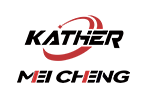When it comes to choosing a reliable agricultural machinery parts supplier, evaluating their reliability is crucial. This process involves examining core certifications, industry experience, reputation, financial stability, and supply chain transparency.
Core Certifications to Look for in Suppliers
I"Critical certifications must be verified when choosing a supplier. ISO 9001 is a critical decoration that means a supplier follows quality management systems, securing consistency and satisfying clients’ demands. Certain agricultural machinery certifications such as the CE mark in Europe ensure that products adhere to EU safety and regulatory requirements. Furthermore, accreditations like ISO 14001 demonstrate the supplier's dedication to sustainable approach and environmental responsibility. Verify these statements with references or from reliable sources such as the peak body that represent the industry, such as ANSI for example. These badges provide you with confidence that the provider is not only quality driven but is also being responsible and working to operate safely and sustainably.
Assessing Industry Experience and Reputation
Being familiar with a vendor’s industry experience and reputation is key in assessing dependability. Years a grower has been on the agricultural field is usually a good estimate on dependability of a supplier. The truth is that experienced suppliers often have well-established network and sophisticated mechanisms to provide reliable service. You can also have an idea of the reputation by reading their customer testimonials and case studies. These sources provide a brief look at past projects and clients pleased with results. Industry specific chat forums and review sites can also be a great source for unbiased opinions and feedback. The above tends to be supported by the industry, which indicates that established suppliers regularly out perform new entrants; thus reinforcing the requirement to work with an experienced supplier.
Financial Stability and Supply Chain Transparency
It is critical to verify whether a supplier is financially secure and has supply read through the chain transparency. Examining financial reports or credit agency ratings could reveal something about a supplier’s financial wellbeing. Besides, a reliable shop is probably going to deliver on time, and provide for warranty too. Supply chain processes the supplier are using needs to be reviewed to ensure quality and efficiency of operation, which is another aspect of running a dependable supply chain. Industry analysts evidence has suggested that financially stable suppliers are more prepared to manage market swings and continue providing service levels.
Customization Options for Farm Equipment Compatibility
Tailored Solutions for Specific Agricultural Needs
Customization is key for an effective functionality of farm machinery and will satisfy particular agricultural requirements. Farmers typically encounter specific challenges relating to the crops they are farming, the type of soil, and the type of weather; it would prove beneficial to customize equipment settings in order to accommodate individual needs perfectly. The degree of customization ranges from altering components to designing completely new parts from scratch to customized specifications. For example, a few fields have been able to customize seeders and planters and have produced a substantial increase in productivity, improving performance. Indeed, experiences in agriculture show that specifically adapted implements can significantly reduce consumption by avoiding shortcomings in general purpose equipment.
Testing Protocols for Part Performance
The reliability and durability of custom agricultural parts cannot be overstated, and stringent testing methods are critical. We can work with you to run whatever type of test that you specify to determine the structural ruggedness and the operational function of personalized components, including: stress, fatigue, and environmental impact analysis. Of equal importance is adherence to industry standard practices in carrying out these tests and emphasizing the need for documented procedures for quality control. According to process industry leaders, strong testing recommendations are essential to minimize failure rates and extend the life of components. Additionally, it was found that a high positive correlation exists between the severity of the test program and machines failure and demonstrates the importance of rigorous machine testing in the field of agriculture.
Ensuring Quality and Longevity of Machinery Components
Material Standards and Manufacturing Processes
Good raw materials are the basis of agricultural machinery parts durable, including the necessary tensile strength and corrosion resistance. A high level of tensile strength is important so as to be able to withstand the demands and forces encountered during use, and resistance to corrosion is important for those portions which are subjected to severe environmental conditions. These material characteristics are importance to effective performance and durability of farm machinery.
Production processes are a major factor in the life of machinery elements. Material properties can be strengthened and improved through such methods as forging and heat treatment. Forging is used to improve the internal structure of metals, heat treatment is applied to adjust hardness and elasticity (Important for parts that undergo repeated stress). These processes help to guarantee the durability of ag parts so that they perform day after day.
Suppliers must be certified according to established standards within the industry for quality assurance. This type of certification doesn't just guarantee that the quality of the products is a ensured and still makes buyers have peace of mind. And when suppliers join forces with standards such as ISO, it communicates their dedication to the production quality and operational excellence that are essential to make the technology a funding priority. Research in the field of material science illustrate the importance of materials and processes to the preservation of machinery life, and thus, the important role of good-quality parts in farming sector.
Warranty and After-Sales Support
Strong warranty is a key element in risk control for the customers purchasing tractor parts. A robust warranty gives peace of mind that if a product’s parts are defective or break, they will be refunded under certain conditions. This doesn't just limit buyers' financial liability, it also reflects the manufacturer's belief in the product's longevity and performance. After sales support is also very important and includes features like repair, warranty and technical assistance and availability of spare parts. Responsive, reliable support The right support can help ensure that any problems are quickly resolved to limit downtime and maximize productivity.
There is a strong influence of comprehensive warranties and support on customer loyalty. It's a numbers game and businesses that are going above and beyond when it comes to post purchase experience are actually more likely retain customer loyalty to the brand. Source. This loyalty is borne from the security of having somewhere to turn when you need support. It's a familiar line from every industry leader that service is a strategically designed tactic to retain customers and improve their experience. On a competitive market, these services are the edge in the shopping decision, so, the importance of support and warranty to foment long-term relationship with the customers.
Managing Logistics and Global Supply Chain Considerations
Impact of Tariffs on Supplier Costs
TARIFFS Affecting the agriculture parts market The imposition of tariffs has played a starring role in shaping the pricing structure and supply chain dynamics of components used in agricultural machinery. When tariffs are put in place, they add to the cost of imported components, then increase the overall cost of production for manufacturers and the final cost for consumers. For example, the trade war between the U.S. and China resulted in higher costs for most American manufacturers as tariffs and their effects on fixed logistics networks added strain to cost structures. To offset these effects, suppliers could diversify the sources of their supply—moving production locations to countries with better trading terms. Meanwhile, contradictory economic policies can be the catalyst for unplanned supply chain disruption, causing companies to re-evaluate sourcing efficiency with various tariff scenarios, says Vidya Mani, an associate professor at the Darden School of Business.
Suppliers may make decisions to mitigate the impact of tariffs by moving production to also be from countries that are not subject to the high tariffs. To protect against such disruptions, some companies have taken the enter buffer inventories, similar to the steps taken when tariffs were increased in the past. And analyses indicate the finance effects, and that the steep levies on trade may add to overheads and operational costs determining commercial pricing in the agricultural machinery industry. Adaptation of global economic trends is a key to succeed with these challenges.
Benefits of Local vs. International Suppliers
There are benefits of buying local versus international and I'll break it down for you below. When lead times are shorter and transportation costs are less, local suppliers may have a competitive advantage; this increased logistics efficiency may have environmental benefits. The proximity also makes for better communication and faster response time. International suppliers, on the other hand, may quote better due to labor cost advantage in some areas. For instance, Kenyan firms import machinery from India without much hassle, thanks to the flexible manufacturing and cultural closeness which make for smooth co-operation.
Sourcing Decisions Supply chain strategies are being influenced by sustainability to a great extent, as local sourcing can drastically decrease the emissions in transportation. Information from logistic case studies shows that the primary operating model for international logistics is cost infrastructure-based, however, the main concerning operating model for local suppliers is alignment-based. This dichotomy poses a strategic choice for agricultural machinery businesses that map financial and environmental goals, and supports these businesses in their development of global supply partnerships to ensure their operations are achieving the best possible high speed value.
Establishing Sustainable Partnerships with Suppliers
Maintenance Support and Spare Parts Availability
The provision of spare parts and maintenance support is crucial in enabling uninterrupted agricultural processes. Routine servicing and a stock of reliable replacement parts can help keep machinery online and avoid lengthy and expensive periods of downtime. This kind of value chain relationship will be better identified with suppliers that have a regular maintenance support and part replacement time. Here are three reasons why:1) Promotes Health and Safety for Equipment A prolonged and neglected maintenance schedule can lead to more frequent replacement, and requires sellers to be honest about the age and condition of the equipment. For example, one McKinsey & Company study found that businesses with set maintenance procedures experienced 25% less equipment downtime, indicating that the establishment of these interpersonal relationships between critical suppliers and buyers only is improved through proper preventative maintenance.
Collaborative Problem-Solving Approaches
Cooperative strategies are necessary for responding to the constraints of the supply chain and for promoting innovation in farm machinery branches. By working together on initiatives like strategy meetings or task forces, companies can enhance problem resolution and product development. Indeed, there have been successful retailer-agricultural company arrangements, which address problems such as seasonal supply shortages and provide technology-based schemes. Word on the street Besides, anecdotal evidence from these partnerships indicates a simple truth: Open communication and shared goals are the critical factors that drive successful results. Industry perspective also adds that developing more collaborative working relationships will have important pay-off in terms of breakthroughs in supply chain management and product development, consistent with the overall exhortation for integrated supplier relations.
FAQ
What certifications should I look for in an agricultural machinery parts supplier?
Essential certifications to look for include ISO 9001 for quality management systems, CE marking for compliance with EU safety regulations, and ISO 14001 for sustainable and environmental practices.
Why is industry experience important when choosing a supplier?
Industry experience indicates a supplier's reliability, as experienced suppliers often have developed robust networks and processes that ensure consistent service.
How can I assess the financial stability of a supplier?
The financial stability of a supplier can be assessed by reviewing their financial statements or ratings from credit agencies to ensure they can meet delivery deadlines and handle market fluctuations.
How do tariffs affect the pricing of agricultural machinery parts?
Tariffs increase the cost of imported parts, which elevates overall prices for manufacturers and consumers. Suppliers may mitigate this by diversifying their sourcing strategies.
What are the benefits of choosing local suppliers over international ones?
Local suppliers offer shorter lead times and reduced transportation costs, while international suppliers might provide more competitive pricing. Local sourcing also reduces the carbon footprint due to proximity.
Table of Contents
- Core Certifications to Look for in Suppliers
- Assessing Industry Experience and Reputation
- Financial Stability and Supply Chain Transparency
- Customization Options for Farm Equipment Compatibility
- Ensuring Quality and Longevity of Machinery Components
- Managing Logistics and Global Supply Chain Considerations
- Establishing Sustainable Partnerships with Suppliers
-
FAQ
- What certifications should I look for in an agricultural machinery parts supplier?
- Why is industry experience important when choosing a supplier?
- How can I assess the financial stability of a supplier?
- How do tariffs affect the pricing of agricultural machinery parts?
- What are the benefits of choosing local suppliers over international ones?






